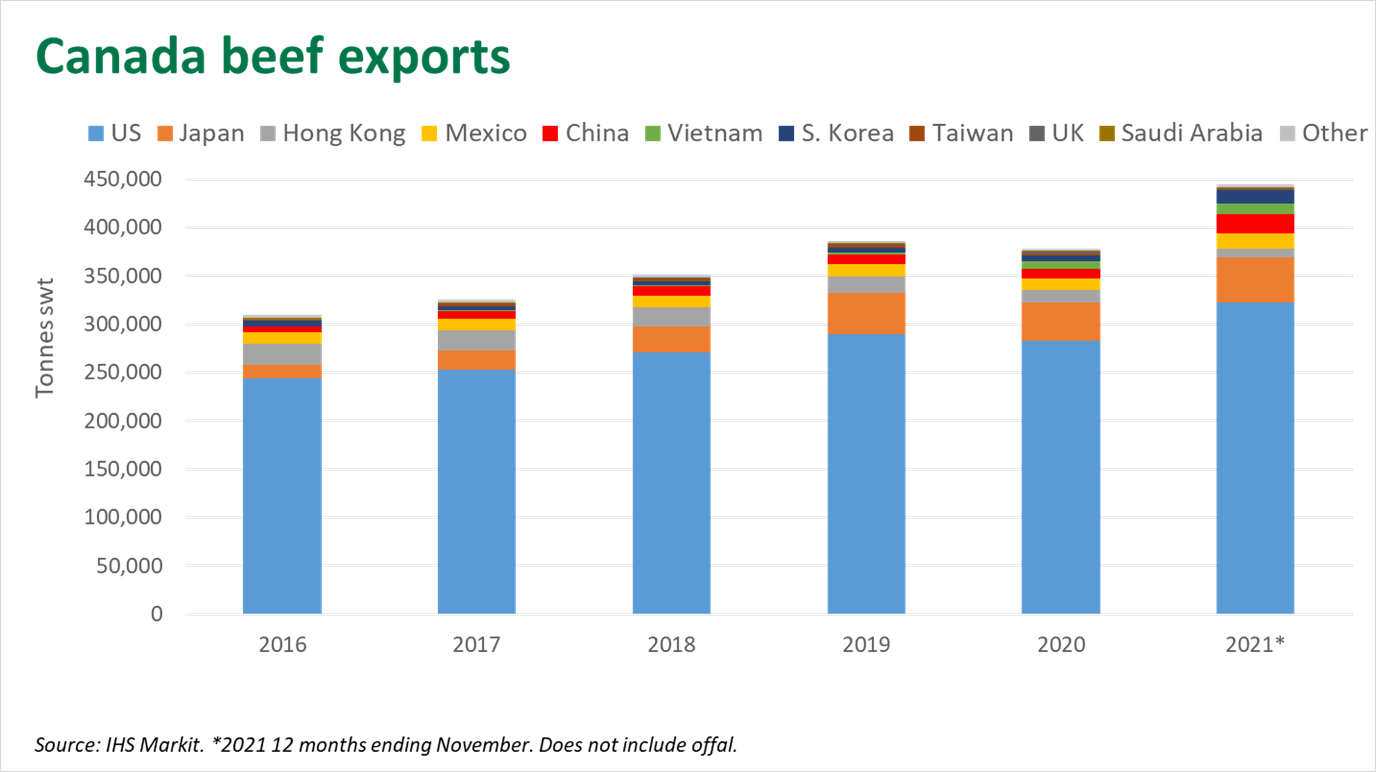



Canadian BSE case detected in December impacting exports
Canada has lost access for beef exports into South Korea, The Philippines and China following the detection of a case of BSE in late December.Key points
- A case of BSE (mad cow disease) was detected on a Canadian farm on 17 December 2021
- Canada has lost some access to South Korea, China and the Philippines as a result
- Canadian beef’s loss of market access is expected to be short
Canada has been gradually increasing its boxed beef exports over the past several years. In the 12 months to November 2021, Canada exported 446,114 tonnes swt of boxed beef, half as much as Australia.

Of the countries that Canada exports to, many of its top 10 customers are also major markets for Australian beef: the US, Japan, China, South Korea, Taiwan, Saudi Arabia and Vietnam. Interestingly, Canada has had a notable shift in exports to Asian and other non-US markets in recent years.
Around 75% of Canadian beef goes to the US, with Japan the second largest destination, taking around 8%. After several years of restricted access to China, exports increased in 2021.
Going into 2022, Canadian beef production was expected to increase, however, if the BSE outbreak affects the reputation of Canadian beef, Australia may be able to increase its share in key markets.


